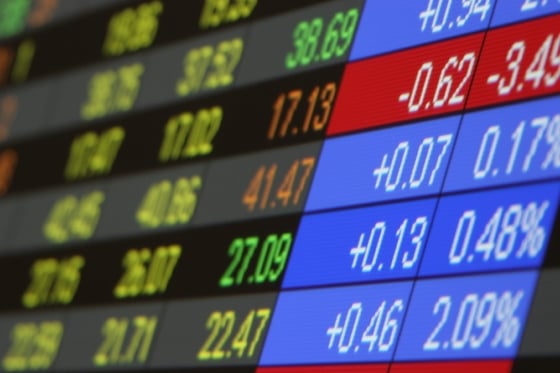The New York Stock Exchange's plan to lure more stock orders from individuals was approved by the U.S. Securities and Exchange Commission, dealing a setback to Wall Street firms that increasingly keep the business for themselves.
NYSE Euronext said in a statement the program will start Aug. 1. The company sought permission in October for the one- year pilot to lure orders by offering retail brokers potentially better prices than are available elsewhere. Under the plan, a class of retail liquidity provider at the NYSE would be allowed to reserve and keep hidden bids and offers for smaller investors as long as the prices beat those in the rest of the market.
The exchange operator's program may help it attract orders that otherwise would be retained by financial firms and matched through a process known as internalization. NYSE market share of trading in companies it lists has fallen to less than 25 percent in May from 82 percent in 2003, data compiled by Bloomberg and Barclays Plc show.
“Ultimately, we think it'll result in more liquidity and better prices to flow back to retail customers,” Joseph Mecane, executive vice president and chief administrative officer for U.S. markets at NYSE Euronext, said today in a phone interview.
Wholesale orders
Most orders from individual investors who trade through retail brokers are sent to wholesalers, such as Knight
Capital Group Inc. and
Citadel LLC, who pay the brokers for sending them. The wholesalers can then execute the orders internally, instead of going to an exchange, as long as they provide prices that match or improve upon levels in the public markets.
Orders from investors are attractive to market makers and asset managers because the senders, unlike professional traders, aren't expected to know more about short-term price movements than the firm they're dealing with. Soliciting the orders could lure more trading to NYSE, Mecane said.
NYSE Euronext's plan would provide an incentive to retail brokers, such as E*Trade Financial Corp. and TD Ameritrade Holding Corp., to send orders directly to the exchange. As more retail orders come in, the institutional investors who trade on the exchange would see more retail orders, attracting institutional investors and more business to NYSE Euronext.
Penny quotes
Knight, one of the main market makers on the NYSE, said in December that the plan could disrupt trading by dismantling a ban on quote increments of less than 1 cent. That, in turn, could require technology upgrades and changes to trading rules, according to Leonard Amoruso, Knight's general counsel.
“By matching these orders at better than penny increments, you wind up fragmenting and creating more price variations, which create less liquidity at every price point,” Larry Tabb, chief executive officer of Tabb Group LLC in New York, said in a phone interview today. “So it may be harder to get larger orders filled.”
About 10 percent of U.S. equities volume comes from individual traders, according to NYSE's Mecane. Discount and other brokers that cater to those clients often turn to wholesalers for orders that can be traded at the market's prevailing price.
Charles Schwab Corp. sent 99 percent of its orders to UBS AG in the second quarter. TD Ameritrade sent 74 percent of its market orders in NYSE-listed stocks to Citadel and 21 percent to UBS in the third quarter.
Reliable prices
NYSE Euronext executives have argued that the increase in orders traded away from exchanges erodes the ability of buyers and sellers to interact and yield prices that are deemed reliable. About 30 percent of equities trading takes place over- the-counter, with those transactions based on prices established on exchanges, according to data from Bats Global Markets Inc.
The program would create two categories of brokers: retail member organizations and retail liquidity providers. Orders from a firm in the first group or a broker acting on its behalf could trade against hidden orders at the exchange intended only for retail clients.
The pricing reverses the traditional fee structure on the biggest U.S. exchanges, which normally pay firms adding liquidity and charge as much as 30 cents per 100 shares for those trading against existing orders. Exchanges pocket the difference. The 30-cent cap was set by the SEC.
NYSE's designated market makers, which include units of Barclays Plc, Getco LLC, Knight and Goldman Sachs Group Inc., along with the exchange's so-called supplemental liquidity providers, such as automated firms Virtu Financial LLC and Hudson River Trading LLC, could supply orders for retail brokers through the program. Mutual funds and other investors could furnish orders for individual traders, although their fee would be higher than what NYSE's liquidity providers pay.
--Bloomberg News--







